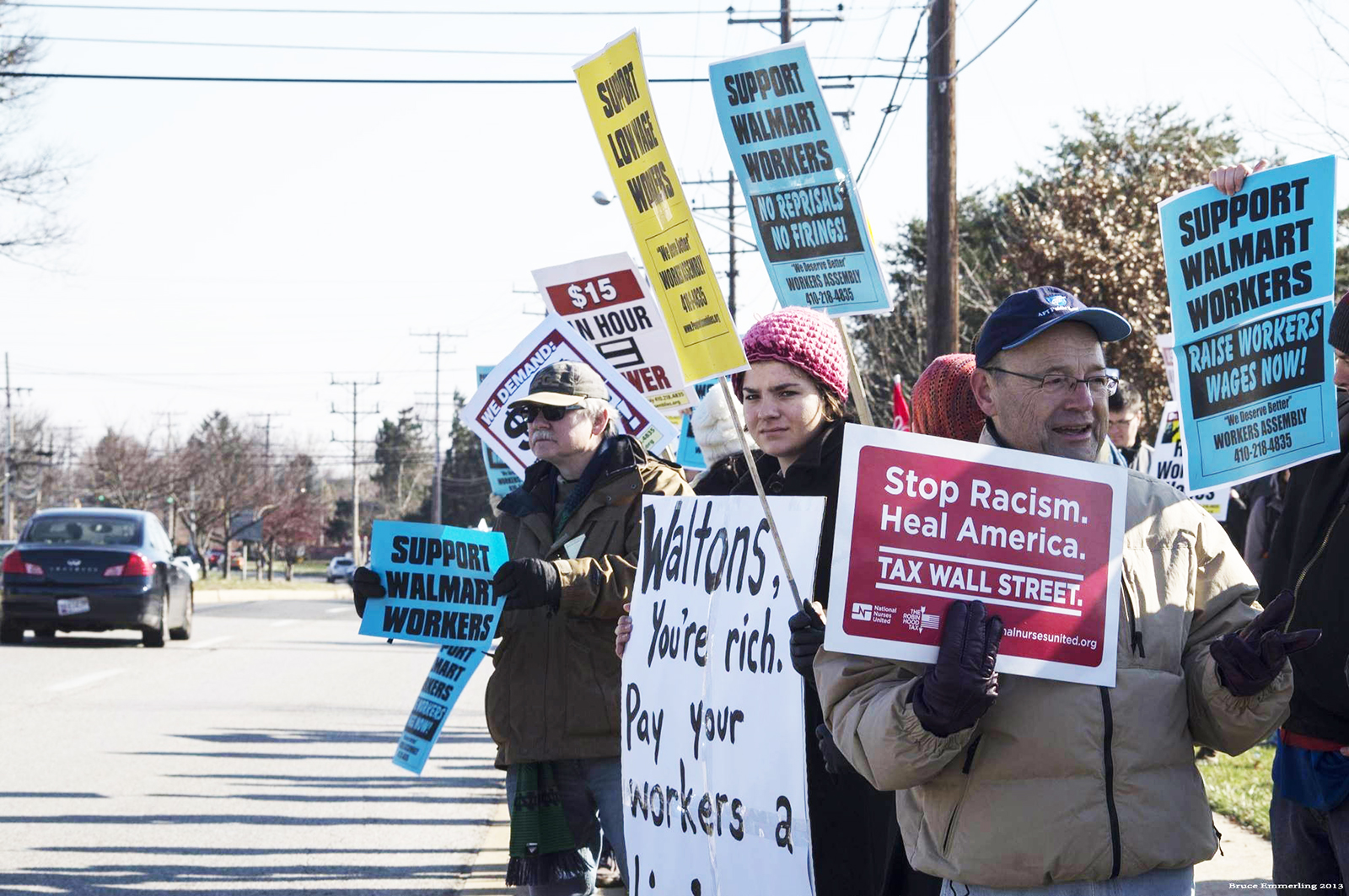Arthur Wang: Wal-Mart wage increase serves political ends over social responsibility

(Courtesy of SocialJusticeSeeker812/Flickr)
By Arthur Wang
Feb. 25, 2015 2:25 a.m.
The retail giant Wal-Mart is an enormously profitable company, but it has never been a favorite among conscious consumers.
Last week’s decision by executives to raise Wal-Mart’s wage floor from government-mandated minimums to $9, and eventually $10, an hour might be seen as an effort to turn its image around.
It’s easy to see Wal-Mart’s move as good news, given the corporate ethos of the company and the reluctance of money-obsessed investors to see short-term profits fall. Still, the selfishness of the Waltons, the wealthy family behind the chain, and an obstinate refusal to allow unionization are among the many signs that the company is not interested in serious reform or the rights of workers.
Most importantly, many states have minimum wages above the federally mandated $7.25, so only a tiny fraction of a workforce of over 1 million will see a substantial raise. Wal-Mart isn’t raising wages because it’s concerned about fair pay, but because it has become politically necessary, and the move can deflect calls for government-led raises.
This is America, where many agree that the rich don’t deserve to have their hard-earned cash taken away from them – partially a consequence of what is called the “temporarily embarrassed millionaire” upward mobility myth that is embedded in the American Dream. But even the most uncritical average American should be astounded by the greed of America’s richest family.
The announced wage hike was a result of mounting social and political pressures by a growing bipartisan recognition that stagnating wages threaten economic growth. That the wage is only going to be increased to $10, which is only marginally higher than the minimum in most states, is an easy indication of the superficiality of the decision. In California, the minimum wage is already set to increase to that amount next year, and many other states have increases planned or scheduled. Furthermore, the hike is not enough to reverse an astoundingly long trend of real wage stagnation.
Reports that the economy has bounced back are so because recovery has been kindest to the richest Americans – 95 percent of income gains between 2009 and 2012 went to the top 1 percent of the earners. As a matter of fact, the rest of America became poorer. This is especially egregious considering that long-term economic productivity gains have been so substantial that if real wages kept pace with them, the minimum would be $15 dollars an hour.
Wal-Mart is easy to criticize here because the people behind the 11,000-store chain are real-life Scrooges. The Waltons, who collectively a own majority stake in Wal-Mart and are heirs to the fortune that their father’s company has amassed, are among the least charitable people in America, even as their wealth, totaling over $170 billion dollars, surpasses that of 130 million Americans combined. Most of their money goes toward a series of trusts that allow for the dodging of estate taxes. And the family has not signed the Bill Gates-led pledge among billionaires to donate half their fortunes to charity.
Unlike the wealthy industrialists of the Gilded Age, who followed Carnegie’s call for the rich to address income inequality with charity and philanthropy, the Waltons, who have hardly even donated to the charitable organization in their own name, are having none of that. Giving even a tiny fraction of their fortune in the form of a substantial raise for Wal-Mart employees could dramatically improve the livelihoods of millions. Instead, the company has been teaching managers union-busting tactics to retain record revenues.
The success of Wal-Mart is a classic capitalist story involving the exploitation of low-wage workers and the skirting of labor laws for the sake of benefiting the tremendously wealthy. Wal-Mart raised wages because it doesn’t want to wait until the government forces it to or unionization efforts force its hand. Nobody should be told what to do, but the next time you’re in a Wal-Mart, think about the tired workers instead of the “rollback” deals.


